-
The Little Rock Nine: Struggle for Integration
Stephanie Fitzgerald
Library Binding (Compass Point Books, Sept. 1, 2006)In the fall of 1957, nine students in Little Rock, Arkansas, volunteered to integrate the city’s all-white Central High School. This group, known as the Little Rock Nine, soon found themselves in the center of a firestorm. Many people did not want black students to attend the school, and they fought hard to stop them. But the students faced the challenge with grace, dignity, and courage. They pioneered the way for equality in schools and demonstrated the power of freedom for all Americans.
-
The Teapot Dome Scandal: Corruption Rocks 1920s America
Barbara J. Davis
Library Binding (Compass Point Books, Sept. 1, 2007)A look at the Teapot Dome scandal, in which government oil reserves were leased without competitive bidding, that rocked the administration of President Warren G. Harding. Y
Y
-
The Indian Removal Act: Forced Relocation
Mark Stewart
Library Binding (Compass Point Books, Jan. 1, 2007)When the United States won its freedom from Great Britain, colonies became states, subjects became citizens, and the nation’s leaders faced a complex question: How did the native people of the United States fit into this new picture? Government leaders concluded that they did not. The Indian Removal Act of 1830 sparked intense moral and political debate, led to the near-destruction of five powerful Southeastern tribes, and exposed the widening gap between the young country’s ideals and its actions. W
W
-
Assassination at Sarajevo: The Spark That Started World War I
Robin S. Doak
Library Binding (Compass Point Books, Sept. 1, 2008)On June 28, 1914, a 19-year-old Bosnian student named Gavrilo Princip stepped up to an open car on a Sarajevo street and fired two shots. The bullets from Princip’s gun killed Archduke Franz Ferdinand, the heir to the throne of Austria-Hungary, and his wife, Sophie. The gunfire also set the stage for the most disastrous armed conflict the world had yet experienced. Exactly one month after the assassination in Sarajevo, Austria-Hungary declared war on Serbia, and World War I began.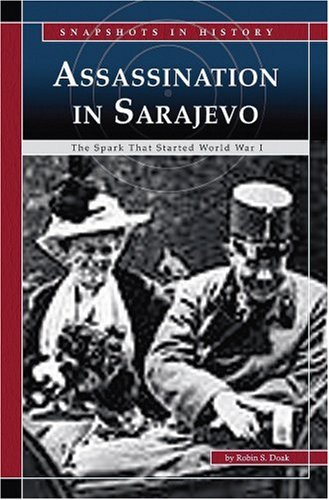 Y
Y
-
Black Tuesday: Prelude to the Great Depression
Robin Doak
Library Binding (Compass Point Books, Sept. 1, 2007)An exploration of the causes and effects of the stock market crash of 1929.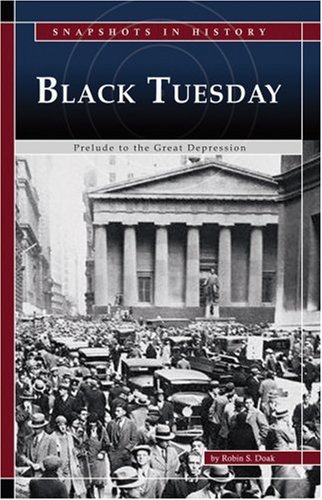 Z
Z
-
1963 Birmingham Church Bombing: The Ku Klux Klan's History of Terror
Lisa Klobuchar
Library Binding (Compass Point Books, Jan. 1, 2009)On a quiet Sunday morning in September 1963, a bomb blew open the Sixteenth Street Baptist Church in Birmingham, Alabama. Four young African-American girls who were preparing for the worship service died in the blast. The attack was the work of the Ku Klux Klan, a shadowy racist organization that for decades waged a violent campaign of terror against people working for racial equality. The devastating bombing gave momentum to the civil rights movement, leading to the passage of important federal civil rights laws.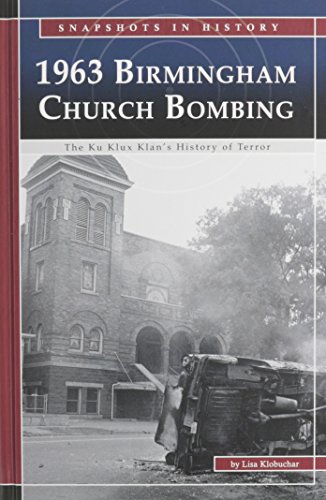 Y
Y
-
The Japanese American Internment: Civil Liberties Denied
Michael Burgan
Library Binding (Compass Point Books, Jan. 1, 2007)On December 7, 1941, Japanese warplanes bombed the U.S. naval base at Pearl Harbor, Hawaii, bringing the United States into World War II. U.S. leaders feared that Japanese Americans would betray the United States to help Japan. The federal government moved Japanese people from their homes in the United States into special camps called relocation centers. Many internees felt that their fundamental rights as U.S. citizens had been denied. Other Americans agreed, and the government’s actions during wartime are still being debated today.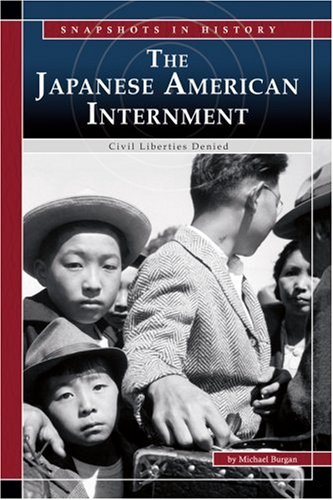 X
X
-
The Berlin Wall: Barrier to Freedom
Michael Burgan
Library Binding (Compass Point Books, Sept. 1, 2007)A look at the history of the Berlin Wall, which divided the city of Berlin into communist and capitalist sections for 28 years.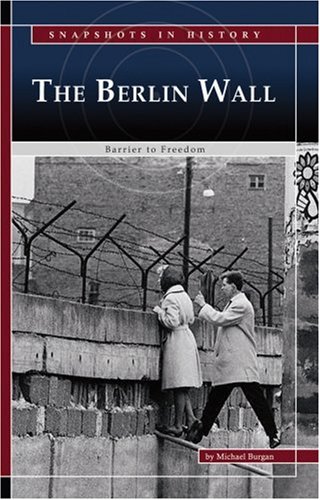 Y
Y
-
The Korean War: America's Forgotten War
Brian Fitzgerald
Library Binding (Compass Point Books, Jan. 1, 2006)Provides detailed information on the events leading up to and during the Korean War. Includes source notes and timeline.
-
Kristallnacht, The Night of Broken Glass: Igniting the Nazi War Against Jews
Stephanie Fitzgerald
Library Binding (Compass Point Books, Jan. 1, 2008)Fitzgerald, Stephanie T
T
-
Dred Scott v. Sandford: A Slave's Case for Freedom and Citizenship
Sharon Lee Cromwell
Library Binding (Compass Point Books, Jan. 1, 2009)A lawsuit filed in 1846 by Dred Scott, an African-American slave, to gain freedom for himself and his family became a landmark legal case in U.S. history. Scott’s argument that he became free when his owner took him to a free state did not prevail. The U.S. Supreme Court ruled that he was still a slave, he was not a U.S. citizen, and so he could not sue in federal court. The decision angered many Americans and pushed the country toward civil war. Y
Y
-
McCarthyism: The Red Scare
Stephanie Fitzgerald
Library Binding (Compass Point Books, Sept. 1, 2006)In 1950, the United States was gripped by a fear of communism. The Soviet Union had expanded its communist influence, and news of Soviet nuclear testing had many Americans fearing for their lives. Contributing to the hysteria was Joseph McCarthy, a senator from Wisconsin who made headlines by claiming that Communist spies were working in the U.S. government. The fear and mistrust of this "Red Scare" affected people in all walks of life. It appeared as if no one was safe from investigation.